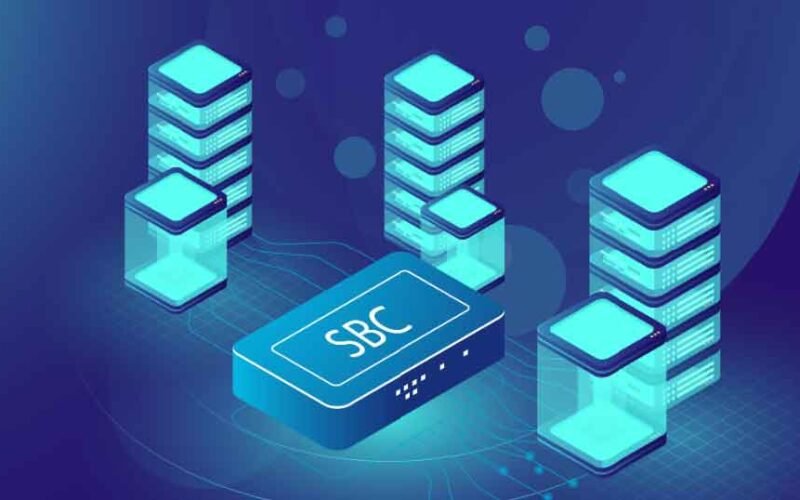Many organizations now widely adopt Session Border Controllers (SBCs) for enterprise network security solutions. These solutions provide specific tools and frameworks that protect your network from threats and attacks.
Session Border Controllers are hardware devices or software applications deployed on the network’s border, shielding your enterprise network from Session Initiation Protocol SIP-based attacks. Phone calls initiated during any communication are known as sessions. Session Initiation Protocol (SIP) is a signaling protocol that initiates and terminates any communication on the network. When a session is initiated by the Session Initiation Protocol (SIP) over the IP network, SBC also enables high-quality voice and video calls and defines a flexible space for enterprise network transformation.
What are Session Border Controllers?
SBCs are responsible for determining and preventing external threats to data and calls transmitted over the Internet. They act as a firewall to intercept malicious attacks and calls to the SIP networks.
How are SBCs Enhancing Enterprises’ Networks to a Broader Extent?
Any business or enterprise’s growth depends mainly on proper formulation and implementation of planning—planning for expansion, developing new products, increasing sales, and securing ideas and organization networks from external threats.
Security
The prime benefit of SBCs is security. SBCs safeguard the network by preventing attacks like Denial of Service (DoS) and Distributed Denial of Services (DDos). They ensure your enterprise’s confidential information is carried by the signals through the router as data packets reach the right path with proper frameworks and policies without third-party interference, saving you dollars from any fraud or compliance violation.
Interoperability
SBCs help redirect traffic over the Internet for your enterprise, eliminating unnecessary missed and dropped calls and poor-quality calls. They also test the consistency of video conferencing tools and prioritize queue calls.
Mitigation
Any unusual traffic hampers the data transmitting in a Dos or DDos attack produced from the same server within the same organization. SBCs mitigate any unusual traffic that can be a potential threat over the internet by pattern recognition.
Scalability
SBCs help enterprises grow and enhance scalability by meeting increased resource demand and managing high maintenance costs without compromising performance and systems.
Features of SBC
SBCs provide your enterprise with numerous benefits, tools, and features that redefine enterprise communication and help you build a secure and adequate infrastructure.
Media Transcoding
Codec is a blend of two words: coder and decoder. It compresses media when shared over the Internet and then decompresses it on the endpoint. SBCs act as transcoders between two different codecs that communicate.
Remote User Connectivity
In the era of hybrid mode, ensuring data security is the top priority for organizations and enterprises. Organizations’ workforce working remotely is often a prime target for cybercriminals looking for sensitive data theft, which creates DoS and DDoS attacks. These attacks could disrupt the workforce’s connectivity.
Quality of Service (QoS) management
Missing a vital section of a work call or any data transmitted over the network is a real pain. SBCs provide Quality of Service (QoS) measures by implementing traffic policies and controls. QoS monitors statistical data in a real-time transport protocol (RTP).
Protocol Validation
As the session is initiated from SIP trunking, SBCs interpret the messages and validate the data transmitted according to the protocols. SBCs filter the data that needs to be terminated or accepted.
Higher Scalability with Virtual SBCs
SBCs provide higher scalability and capacity for enterprises to reach broader networks with enhanced redundancy and manageability, which can’t be achieved through local SIP trunking. SBCs provide SBC routing and load-balancing techniques.
Why Opt for SBCs?
SBC ensures several benefits, such as boosting SIP interoperability, protecting your enterprise from SIP attacks, providing high-quality call and video conferencing without traffic on the network, enabling performance and scalability for your network, and providing codec transcoding.
SBCs – A Go-To Approach for Your Enterprise
SBCs are crucial for enterprises switching to VoIP (Voice over Internet Protocol) and adapting Unified Communications. SBC helps enterprises enhance productivity and improve client services from your end. Unlock the full potential of your SBCs to secure and strengthen your VoIP and unified communication solutions with crucial points discussed briefly in the above article.







